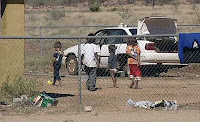 Johnson’s Reconstruction Plan:
Johnson’s Reconstruction Plan:
Johnson Abraham former vice President proposed a slight different plan that was more generous after Abraham Lincoln’s death. He pardons southerners who swore allegiances to the Union. He permitted each state to hold a constitutional convention without Lincoln’s 10 percent. He forced states to void secession, abolish slavery, and repudiate the Confederate debt. He also permitted to hold elections and rejoin the Union.
 Black Codes:
Black Codes:
Black Codes are laws that restricted freedmen’s rights. These black codes established virtual slavery with provisions. The black codes consisted of curfews, when black people could not gather after sunset. Vagrancy laws Freedmen convicted vagrancy laws, not working could be fined, whipped, or sold for a year’s labor. In addition to labor contracts were freedmen had to sign agreements in January for a year work. Those who quit in the middle of a contract often lost all the wages they had earned. Finally Land Restrictions, freed people could rent land or homes only in rural areas. This restriction forced them to live on plantations. 14th Amendment:
14th Amendment:
All persons born or naturalized in the United States and subject to the jurisdiction thereof, are citizens of the United States and of the State wherein they reside. No State shall make or enforce any law which shall abridge the privileges or immunities of citizens of the United States; nor shall any State deprive any person of life, liberty, or property, without due process of law; nor deny to any person within its jurisdiction the equal protection of the laws.
This law means that all persons that are born in the United states territory with full and equal rights should get protected under the law. 15th Amendment
15th Amendment
The 15th Amendment to the Constitution granted African American men the right to vote by declaring that the "right of citizens of the United States to vote shall not be denied or abridged by the United States or by any state on account of race, color, or previous condition of servitude."
This law guarantees African Americans the right to vote, to hold public office, to serve on juries and testify the court.
 Radical Reconstruction:
Radical Reconstruction:
After sweeping the elections of 1866, the Radical Republicans gained almost complete control over policymaking in Congress. Along with their more moderate Republican allies, they gained control of the House of Representatives and the Senate and thus gained sufficient power to override any potential vetoes by President Andrew Johnson.
 Carpetbagger:
Carpetbagger:
North republicans who moved to the postwar south became known as carpetbaggers. Southerners gave them this insulting name, which referred to a type of cheap suitcase made from carpet scraps. The name implied that these northerners had stuffed some clothes into a carpet bagger and rushed in to profit from southern misery. Carpetbaggers were often depicted as greedy men seeking to grab power or make a fast buck. However, historians point out that carpetbaggers were honest and educated men. Scalawag:
Scalawag:
Scalawags is originally a Scottish word meaning "scrawny cattle". It was used to name white southern republican because they were believed to be traitors. The scalawags usually included Wigs which were opposed to the secession and farmers who resented the planter class. Many southerners resented the scalawags, carpetbagger and freedmen’s power. They also thought reconstruction legislatures were incompetent. But it is believed that these officials were no worse than in other regions of the country at that time.











































